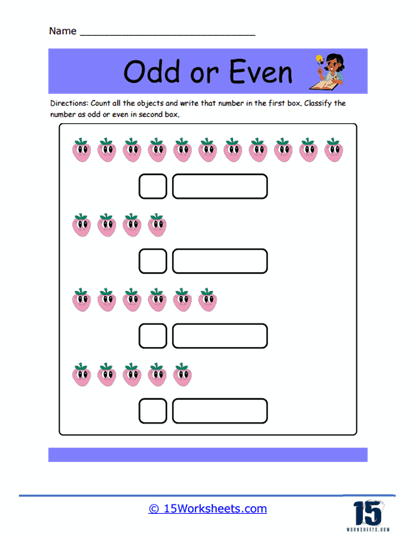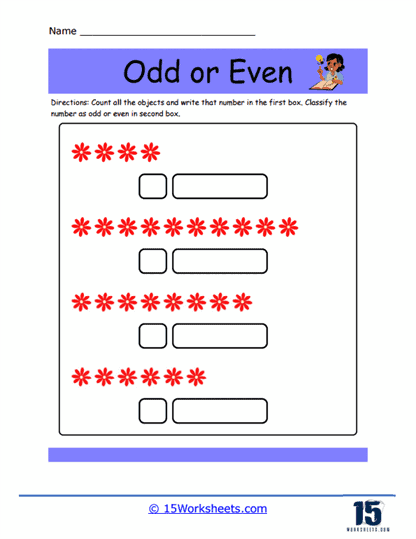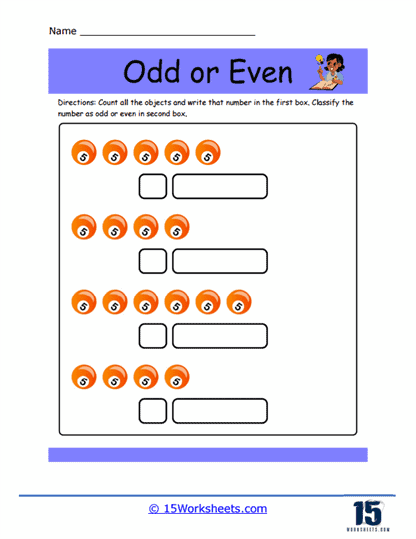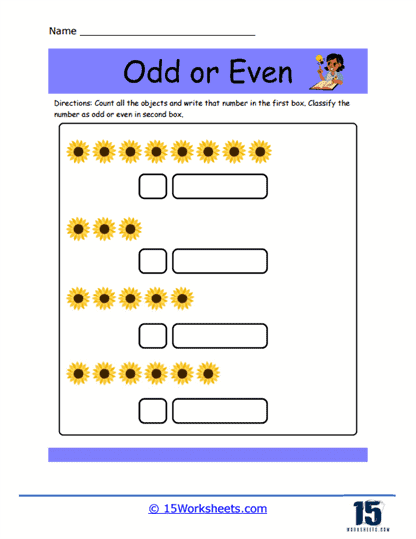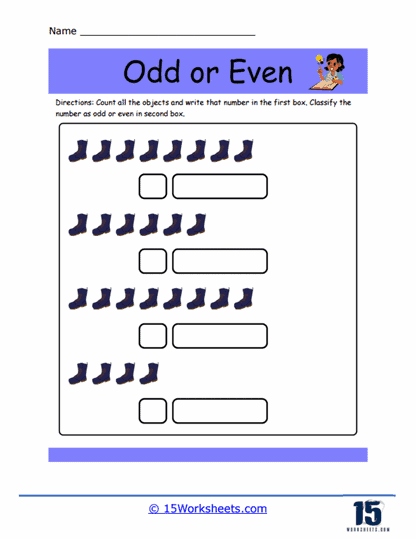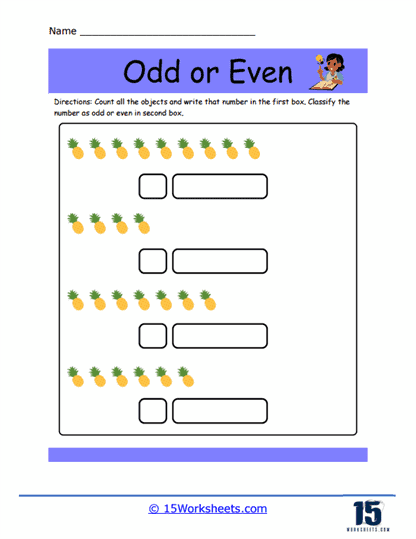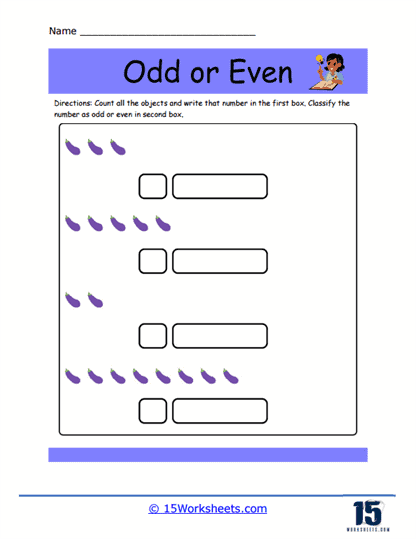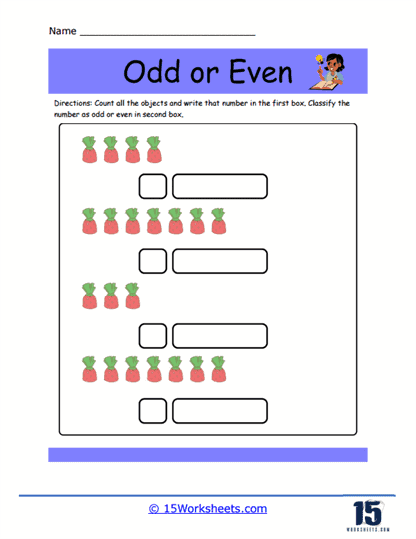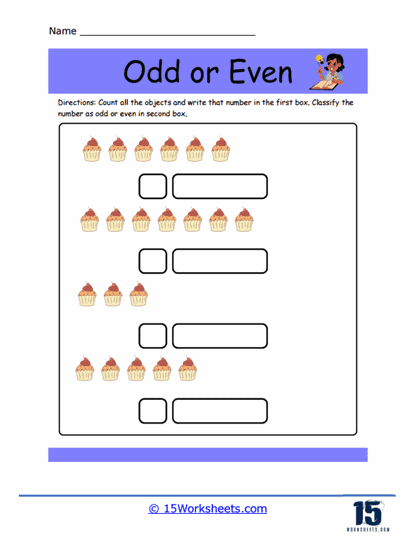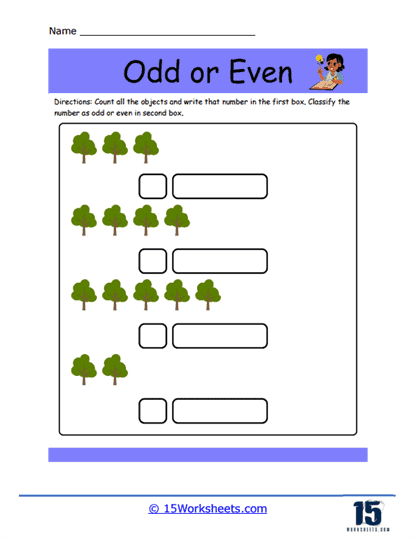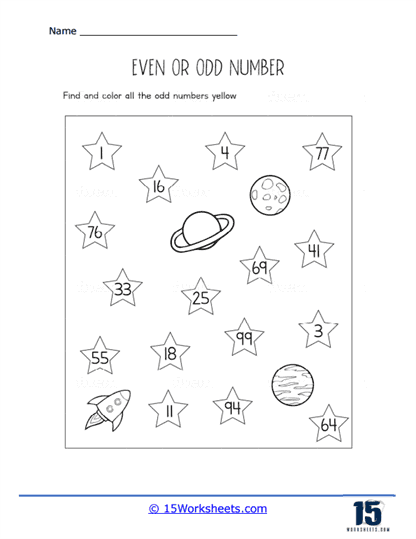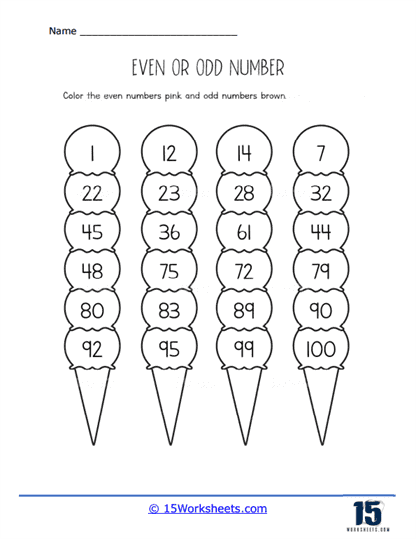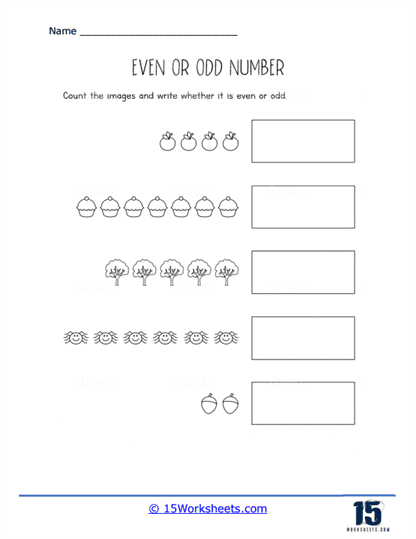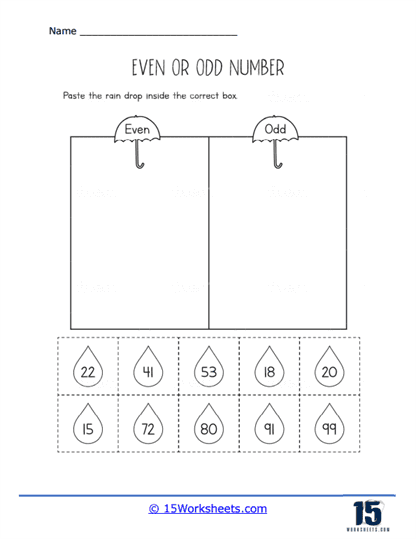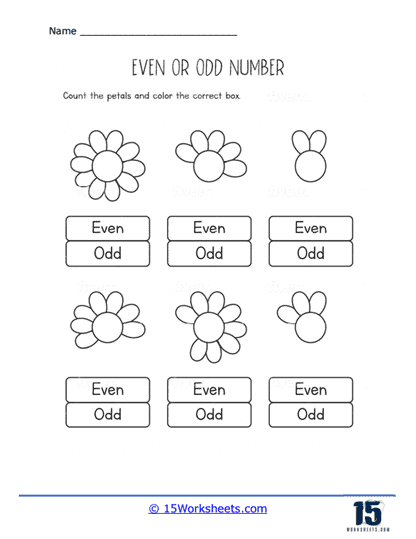Odd or Even Worksheets
About These 15 Worksheets
Odd or Even worksheets are educational activities designed to help children learn, understand, and practice identifying odd and even numbers. These worksheets focus on reinforcing the concept of odd and even numbers, which is a fundamental skill in early mathematics and number sense.
The concept of odd and even numbers is based on their divisibility by 2. A number is considered even if it can be divided evenly by 2, leaving no remainder. On the other hand, a number is considered odd if it cannot be divided evenly by 2 and leaves a remainder of 1.
The worksheets can come in various formats, such as:
Identification – Worksheets may require children to identify whether a given number is odd or even, by circling, underlining, or coloring the numbers accordingly.
Sorting – Children may need to sort or categorize odd and even numbers into separate groups or columns.
Fill in the Blanks – Worksheets might ask children to complete sequences of numbers by filling in the missing odd or even numbers.
True or False – Worksheets could present children with statements about odd or even numbers, asking them to determine if the statements are true or false.
Word Problems – Children may be given word problems or real-life scenarios that require them to apply their understanding of odd and even numbers to find solutions.
Number Patterns – Worksheets may present number sequences or patterns, and students need to identify the odd or even numbers within the sequence. This helps develop pattern recognition skills and reinforces the concept of odd and even numbers in a broader context.
Problem Solving – Some worksheets include word problems or scenarios where students need to determine whether the quantity or outcome represents an odd or even number. This encourages critical thinking and application of the odd and even concept in real-life situations.
Odd or Even worksheets offer several benefits for children:
Number Sense – These worksheets help children develop a strong foundation in number sense by understanding the properties and patterns of odd and even numbers.
Problem-solving – Children use problem-solving skills to determine whether a number is odd or even, and to complete number sequences or solve word problems.
Pattern Recognition – Identifying odd and even numbers allows children to recognize and understand numerical patterns, which is essential for more advanced math topics.
Confidence – Mastering the concept of odd and even numbers builds confidence in a child’s mathematical abilities, setting the stage for success in more advanced math topics.
Foundation for Learning – Practicing odd and even numbers is essential for building a strong foundation in early numeracy skills, which is crucial for children’s success in mathematics.
These worksheets are commonly used in classrooms, homeschooling settings, and tutoring sessions to reinforce and assess students’ understanding of odd and even numbers. They provide a structured and engaging way for students to practice and internalize the concept, ultimately building their mathematical skills and fluency.

